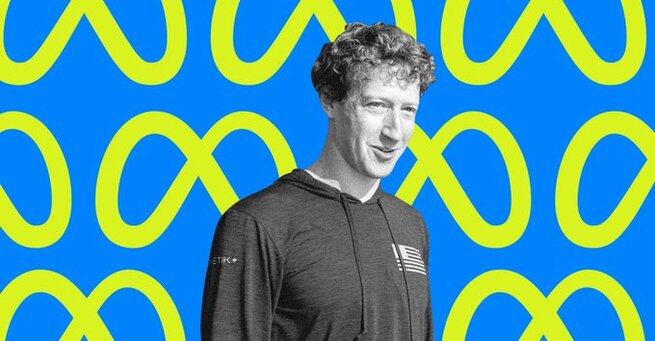
Mark Zuckerberg is making big moves in the world of artificial intelligence, and his latest vision centers on "personal superintelligence" for everyone, particularly through the use of smart glasses. This ambitious goal aims to provide individuals with an AI tool that deeply understands their needs, helps them achieve personal goals, and enhances their daily lives. But what exactly does this mean for the future of AI and how will Meta achieve it?
Mark Zuckerberg's recent announcement outlines a future where AI isn't just a productivity booster but a personal companion, a superintelligent AI tailored to each individual. This concept of "personal superintelligence" is essentially Artificial General Intelligence (AGI) – AI that can perform a wide range of tasks at or beyond human intelligence. Zuckerberg envisions this AI as a tool that empowers users to create, explore, and grow, moving beyond the current focus on automating work. He believes that while the improvement in AI might seem slow for now, its progress is undeniable, and developing superintelligence is "now in sight." This bold statement reflects a significant shift in Meta's long-term strategy, prioritizing a human-centric approach to advanced AI.
To realize this vision of personal superintelligence, Meta has embarked on an aggressive campaign of investment and talent acquisition. The company recently made its largest-ever external investment, acquiring a 49% stake in Scale AI for $14.3 billion. This move was not just about data; it was about bringing Scale AI's CEO, Alexandr Wang, on board to head Meta's new superintelligence lab. Meta has also been poaching top AI talent from leading competitors like OpenAI, Google DeepMind, Anthropic, and Apple, with some offers reportedly reaching up to $100 million pay packages, and many others in the $1-1.4 million range. This substantial investment in human capital and cutting-edge infrastructure demonstrates Meta's serious commitment to winning the AI race and developing advanced AI capabilities.
A key component of Zuckerberg's vision for delivering personal superintelligence is wearable technology, especially smart glasses. He emphasizes that these devices, which can "see what we see, hear what we hear, and interact with us throughout the day," will become our primary computing devices. This aligns with Meta's existing efforts, such as the Ray-Ban Meta smart glasses, which have seen significant sales growth. For instance, sales of Ray-Ban Meta glasses reportedly tripled in the first half of 2025. This focus suggests a future where AI seamlessly integrates into our everyday lives, providing context-aware assistance and experiences through a natural, hands-free interface. The integration of advanced AI into discreet, stylish eyewear is crucial for making superintelligence truly personal and ubiquitous.
Meta's pursuit of superintelligent AI through personal devices like smart glasses sets it apart from some competitors who focus on more centralized AI systems. Zuckerberg believes that empowering individuals with AI rather than automating all work will lead to a more meaningful impact on humanity, fostering creativity, culture, and personal growth. This strategic direction, backed by massive investments in infrastructure and talent, highlights the company's long-term commitment to defining the future of AI. The coming years will be decisive in determining how this technology evolves and whether Meta's vision of widespread personal superintelligence becomes a reality, transforming how billions of people interact with technology and each other.
𝗦𝗲𝗺𝗮𝘀𝗼𝗰𝗶𝗮𝗹 𝗶𝘀 𝘄𝗵𝗲𝗿𝗲 𝗿𝗲𝗮𝗹 𝗽𝗲𝗼𝗽𝗹𝗲 𝗰𝗼𝗻𝗻𝗲𝗰𝘁, 𝗴𝗿𝗼𝘄, 𝗮𝗻𝗱 𝗯𝗲𝗹𝗼𝗻𝗴. We’re more than just a social platform — from jobs and blogs to events and daily chats, we bring people and ideas together in one simple, meaningful space.